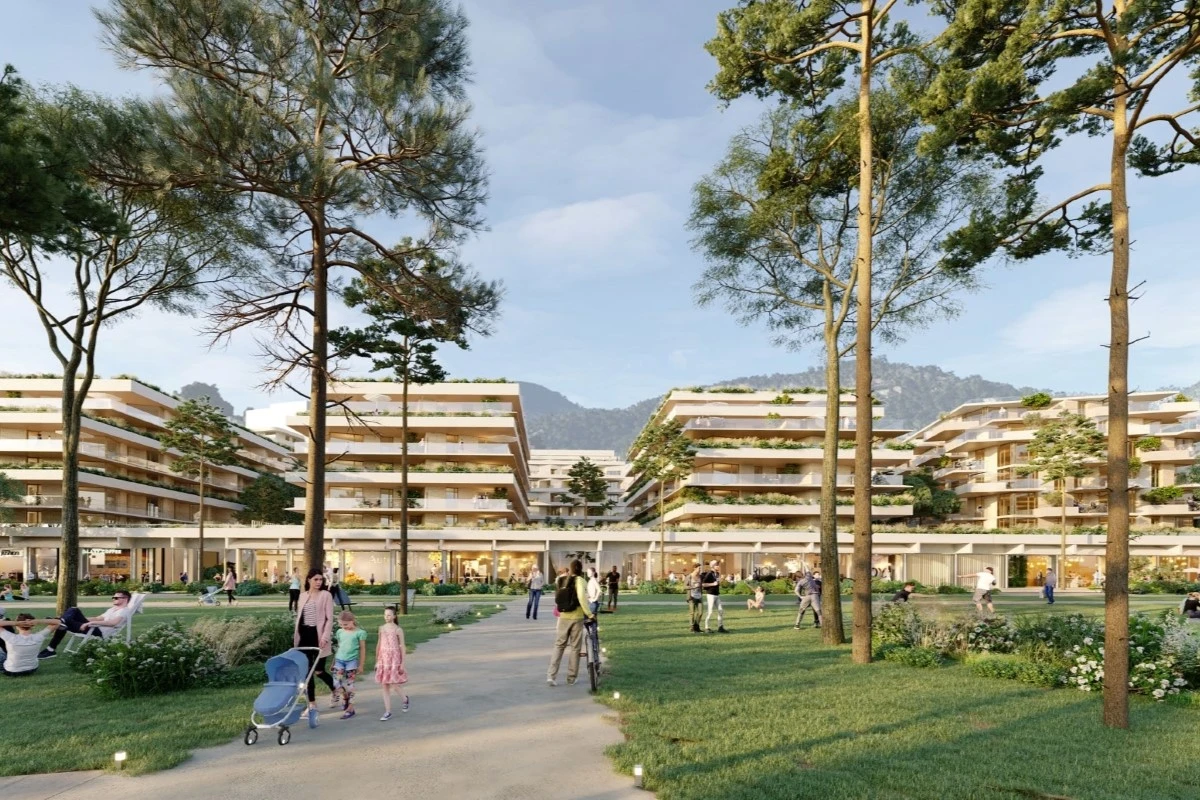The Cœur de Carnolès development in Roquebrune-Cap-Martin has been given the green light to proceed to the next stage by the Préfecture des Alpes-Maritimes despite the presence of a number of protected species on the site. The developers must, however, adhere to set rules regarding the safe relocation of the creatures, ensuring “no net loss” of life.
The ambitious Cœur de Carnolès project in Roquebrune-Cap-Martin, which will transform a former military site, Base 943, into a vast residential and commercial zone, has taken a significant step forward.
The 35,000 sqm plot between Avenue de la Paix and Avenue de Verdun has been largely unused since the military vacated it nearly 12 years ago. Plans to redevelop the site were set in motion some time ago, but various obstacles have prevented the developers from moving ahead at pace.
Among these issues was the presence of several protected species at the site, including geckos, lizards, snakes and bats, which were discovered during a mandatory ecological survey of the area.
Their presence would typically halt or hinder a real estate development, but the Préfecture des Alpes-Maritimes recently decided to allow the developers to relocate the animals under certain conditions.
For example, the geckos must be captured and introduced into the nearby Cros-de-Casté parkland, ensuring “no net loss” in their population. The trees favoured by the bats must be felled gradually, with the process monitored by an ecologist.
According to France 3, the developers must also install 20 nesting boxes in the immediate area, and the future buildings must include roosting sites for bats. Additionally, the “initial earthworks, transplantation and tree felling [must] be carried out between October and February, outside the breeding season for common songbirds and bats.”
More than 400 New Homes
Once complete, the Cœur de Carnolès development will offer 405 new homes, including 150 social housing units. It will also feature a school, 3,100 sqm of commercial space and a landscaped park.
Designed by Sophie Delhay Architecte, PPX Architects and the Fresh agency, the project aims to create a sustainable and inclusive community that harmonises with its natural surroundings. As such, 27% of the “eco-district” will be dedicated to green spaces.
The accommodation component of the project is due for completion by autumn 2025, with the school expected to be finished by the end of next year.
Read related:
Real Estate: Family homes dominate Monaco’s property market growth
Monaco Life is produced by real multi-media journalists writing original content. See more in our free newsletter, follow our Podcasts on Spotify, and check us out on Threads, Facebook, Instagram, LinkedIn and Tik Tok.
Photo source: petitdidierprioux.com
